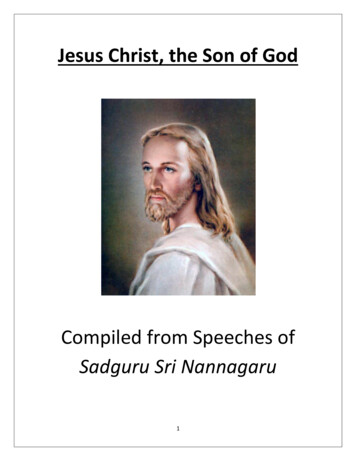
Transcription
Battlefield EarthAl-Nawaz Jiwa
What is Model United Nations?Everybody’s heard of the United Nations. The UN, with its headquarters inNew York City is the largest organization of its kind in the world. Formedafter the conclusion of the Second World War, it is an avenue for countriesto solve mutual problems and resolve international conflict without force orweaponry. The UN itself is a complicated organization with a multifacetedagenda, but nevertheless, it remains a community that embodies unity andsymbolizes continual human progress. This of course does not mean thatthe United Nations is without faults; indeed, many aspects of the UN arein desperate need of reform. Nevertheless, the UN is an important part ofthe global community and continues to play a major role in an increasinglyinterconnected planet.Evidently, the United Nations caters quite well to simulations, aptly termedModel United Nations conferences. By no means are these conventions fewand far between: from Harvard, to Stanford, to the Hague, to Hong Kong,intellectual institutions around the world have realized the importance oflearning about the views of different countries and using this knowledge toachieve a tangible solution. The MUN experience, however, goes beyondmere comprehension. Not only do you have to know your country’s viewson various issues, but you have to be your state; adopting a dynamic way ofthinking to ensure your country’s interests are being served. The beauty ofthe conference is that this mode of thought is not confined to the sessionstaking place each day. Should you choose to fully immerse yourself into theMUN world, you can be assured that the simulation will find its way intoyour hotel room, onto your breakfast table and anywhere else your choose.Unmoderated caucuses will spring up throughout each day as you endeavorto compromise, and find a solution that can be applied to real life problems.You will find yourself discussing issues that currently are affecting millionsworldwide, and striving to find some way to reconcile your own moral viewpoints with the demands of your home government and the earth as a whole.Model United Nations is not just a club or conference, rather, it is way ofthinking. By realizing this at the onset of your conference, not only will yoube better able to contribute as new proposals arise during sessions, but youwill also attain a greater understanding of the dynamics of world community after each trip. Simply, the more you put into each conference working onstrategies and solutions, the more you will get out.Welcome to the world of MUN.Al-Nawaz Jiwa was a head delegate at his high school and is a world MUNchampion. He received a master’s in Political Science from Yale University.
3 Simple Steps to Effective ResearchThe most laborious aspect of the MUN experience is often researching your country andyour committee’ topics and sifting through the seemingly endless stream of backgroundinformation.Before you start though, it's important not to overlook your committee itself. Understanding how your committee functions will be very important later on; at the very least, youshould know where it stands in the bigger picture (is it part of the UN, or is it a separateregional body?), what it can or cannot do (the Disarmament and International SecurityCommittee, for instance, cannot impose sanctions), how it has dealt with similar issues inthe past, and its members.With a firm grasp of your committee, it’s time to begin the bulk of your research. The following questions will help guide you through that process.Step 1: What is the problem I’m being presented with?This should be evident from your committee background guides, which are usually available for download on the conference’s website. These documents will be the basis of yourresearch into the topic areas, as they describe the events that may have precipitated theconflict you will have to deal with.Depending on the conference, the background information will be taken to various levelsof detail. Whatever the case, it is important to read everything that is given to you. Often,there will be section specifically outlining the issues that are at the heart of the topic area.Following this, will be a list of bibliographic material and websites of particular interest. Allof these resources should be used in order to find what the central problems are, and correspondingly, to identify possible solutions or ways to change the status quo.It’s good to have material with perspectives different to those being advocated by in thebackground guide. Creativity and originality in approach to the situation will undoubtedlycreate a great deal of interest from other delegates in your country’s positions and views.Think outside the box: try to determine not only the policies and actions that are currentlyproposed or employed to deal with the issue at hand, but also what led to these approachesbeing instituted in the first place. Specifically, discover the relationship between the currentsituation and past actions. Find the reasons why previous responses have not had the desired effect on the area of concern and observe the nature of the current strife.Step 2: What is my country’s position on the issue?Answering this question involves three steps. Firstly, you must research your country ingeneral. Following this, you should look at how your country’s foreign policy specificallyrelates to the topic at hand. Finally, you should look at past actions you country has taken,—3—
Battlefield Earthand use this to predict what ways it might respond to deal with the present problem.The first part of this research section is the most time consuming, but is absolutely essentialin order to accurately articulate the views and concerns of your nation within committeesessions. The country research should encompass the economic and political systems of thecountry, the history and culture of the society, the demographics of the society, the geography of the country, the international and regional associations the country belongs to, andthe country’s current domestic situation. Specifically, you should look for statistics that canbe used to provide a general understanding as to how the country works, where the government’s power is derived from, and what role the nation plays with its regional and globalcommunity. When researching pay particular attention to measures such as GNP, foreigndebt, political philosophy, type of government, internal language and religious boundaries,population density, division of the workforce, and various geographic regions. All of thesefactors combine to define the unique nature of the country you will representing, and willbecome particularly useful in the formulation of a foreign policy pertaining to the topicareas.The assimilation of this research into a specific and coherent policy on the issues that yourcommittee will discuss is the ultimate goal of your gathering of background information.By first putting yourself in the mindset of your state, you will be better able to understandthe factors influencing government decisions, and therefore, be more representative of yourcountry when confronted with various scenarios during the conference that you might nothave expected.After identifying the problem (Step 1), you must search out existing policies designed tomeet the problem in your country, how the problem affects the population of your countryand its relative importance to your nation at the current time. Sometimes, your country’sgovernment will explicitly state their policies; on the website of the Ministry of ForeignAffairs of South Korea, for instance, it explains in considerable depth Korea’s stance on climate change. However, there is a legitimate possibility that your state has no official policytowards to areas being discussed (the Sultanate of Oman, for instance, has only four articlesof foreign policy in total); if this is the case, your job becomes more difficult.You should then try to identify the groups that exert power and control of the operation ofthe country (often political parties or the government, but not always) and find what theirviews on related matters might be. In doing this, you must be careful to weigh each viewpoint according to the relative support that it holds; that is, you should place the greatestimportance on opinions held by the organizations with the greatest power.For instance, if my topic area related to the legalization of medicinal narcotics and I wereassigned Canada, I would look to the majority party’s political platform in order to gaininsight as to how the country should be represented. If this avenue yields no success andinformation on major interest groups are limited, you may then have to rely on the broadideology of the government and the information uncovered in your general survey to make—4—
Battlefield Earthan educated guess at your country’s position.Another valuable way of generating a country position is to look at the views of other countries that have traditionally sided with your nation. For example, many African nations havesimilar policies regarding the availability of generic drugs to deal with the HIV crisis. Certain blocs will also be specified in your background papers. Keep these in mind for policyformulation as well as for finding potential allies during the conference.What additional resources do I need to use?There is no limit to material that can be used in writing your position paper. Apart from theinformation presented in the background guide, there are many different sources that youshould look into. Obviously, there is general Internet research where you type in variouskeywords into a search engine and explore until you find something useful; this is helpful toget the gist of the topic, but it’s advisable to build up a diverse knowledge base.Firstly, you should look to embassies in your country’s capital city. Write or phone them,outline your questions, and see if they can send you material or at least briefly answer yourquery. Often, they will direct you to someone who is willing to spend some time with youand ensure that you understand how their country functions. There are dozens of otherorganizations (such as the United Nations Information Center, Amnesty International etc.)that release detailed reports outlining new developments and giving insight as to how certain problems should be dealt with (see the list of resources below).Spend some time at a local university’s political library. Even if you can’t take books out,it’s helpful to go and read up on different interpretations of the problem you’re facing from.Talk to your social studies, government & politics, or economics teacher; they may havesuggestions as to how you should attack the issue.Finally, check with your friends and classmates who have attended MUN conferences in thepast. There’s a very good chance that at least one of them will have done something similarpreviously. They should be able to point you into the right direction and help you start onyour position paper, the next major part of MUN preparation.Addresses of Helpful Resource CentersThe UN Information Center — Contains General Assembly and Security Council resolutions as well as free information on many topics. While (given its location in Washington,DC) you will most likely be unable to visit it personally, it is possible for them to suggestbooks that may be helpful.UN Information Center1889 F Street N.W. Ground FloorWashington, DC 20006Telephone: (202) 289-8670—5—
Battlefield EarthUNA-USA — The UNA-USA has a wide variety of information materials including factsheets on numerous topics. You can contact them and request certain resources or, if attending a conference in the New York area, pick some up for future MUNs.UNA-USA485 Fifth AvenueNew York, NY 10017Telephone: (212) 697-3232Embassies — By talking to your local MP, the address of a specific embassy can be obtained.As a general rule, however, written responses can take a very long time.The United Nations — If you can’t get a certain document from a library, you can contactthe UN directly and obtain or purchase it from the Public Inquiries Unit.Public Inquiries UnitDepartment of Public InformationNew York, NY 10017Telephone: (212) 963-4475—6—
4 Steps to Writing a Position Paper YouCan Be Proud OfThe position paper is your go-to reference throughout the conference. Essentially, the paperforces you to write out you country’s viewpoints in paragraph form. It’s also the first important mode of evaluation for the committee staff. Naturally, given its significance to the MUNexperience, the position paper is something you want to excel at, and to do this, severalcriteria must be met.At the onset of this discussion on the position paper it is particularly significant to stressthat it must be written from your country’s perspective. Again, as this document will beyour guideline for action throughout the entire conference, it’s in your best interests to givean accurate portrayal of your country’s stance on the issues at hand. Simply put, the positionpaper is meant to give delegates an opportunity to organize their research into an organizedpolicy statement.Before you start writing, it’s important to look at the discussion questions that outlined inyour background guide. Suggesting a comprehensive course of action that answers thesequeries is the ultimate goal of your write-up. A good position paper should make clearreference to these guidelines and demonstrate that the students clearly comprehend thecreative and compositional depth required for an MUN simulation.If one were looking for some sort of rubric as to what the ideal position paper should consist of, there would be a number of clearly identifiable elements. The position paper has adefinite general structure to it: three sections (totaling one page in length) each of whichserves a clear purpose within the general context of the paper. With reference to the SamplePosition Paper on page 9, we can analyze these different parts and comment on the relativesuccesses of specific techniques used to elucidate points.The first section (labeled A) serves the purpose of outlining the topic in general and providing insight into the root of the conflict. As the subject of the paper is Free Trade, the writeup begins by first stating the areas of concern, discussing some of the positive and negativeaspects of globalization, as well as emphasizing the controversial nature of the topic at hand.Your opening paragraph should, as this paper attests to, be a brief summary of the currentperception held towards the status quo. It should state the problem and express why it issignificant.The second section (labeled B) is where your background research on your country paysoff. Firstly, you should identify and describe your country. Be sure to state how your nation relates to the topic for discussion, specifically citing how your state has been affected(B1). It is imperative to emphasize the extent to which change has taken place. Hold off anynormative judgments in this section, the purpose of this paragraph is not to evaluate theinstitution or development in reference to your country, but rather, to merely discuss how—7—
Battlefield Earthit has altered domestic dynamics.The third section (labeled C) is where you outline your country’s policies and what factorscontributed to those policies being established in the first place. At this point, you are toaddress the relative benefits (if any) and detriments of the development, specifically relatingto your nation and the actions you have taken to maximize or minimize these effects. Youshould explain why your country has acted in a certain fashion historically (C1), and whyit will continue to follow this course of action. Outline your state’s particular interest in theissue being discussed, and begin to discuss what needs to be changed about the currentinterpretation of the situation. Cite the areas needing reform (C2) and provide suggestionsas to how this revision process should be accomplished. Following this, you may want tofocus on one area of particular concern for your country (C3). Depending on your topicarea, this could be anything from the affect of a war on a nation’s health care infrastructureto how creating new national boundaries may affect resource deposits running along thepotential borders. In this particular paper, attention is brought to Regional Trade Alliances(C4) and their associated problems, something that, as been noted, holds special significance to Oman.By approaching a problematic scenario in greater detail, you are demonstrating to yourcommittee staff hat you have the capacity to think critically and can identify the issues withwhich your country has the greatest concern. This being said, choose this area carefully:given the issue’s prominence in your position paper (and correspondingly the problem’ssignificance to your country as a whole), you will have to stress its importance during committee session. Be sure to select an area of concern that could potentially form the basis ofa resolution, or at least one that can stimulate prolonged debate.Finally, a conclusion should be written to restate your country’s position and sum up whatyou hope to achieve throughout the duration of the conference (D).The position paper leaves the committee chair with a first impression of your delegation.Naturally, it’s important to make that impression as strong as possible. The staff looks fororiginal and critical thinking, a true understanding of the nature of your nation and botha function and applied knowledge of your topic. Be sure to demonstrate this through presenting a concise yet effective paper.Between the time you submit your position papers and the conference, you’ll probably bebusy with schoolwork, so don’t worry excessively about preparation. On weekends, however, you may find it helpful to review material and do more researching so as to keep up todate with the latest happenings. Other than that, get ready for showtime!—8—
Sample Position PaperTopic: Free TradeCountry: OmanCommittee: Economic and Financial (ECOFIN)(A) The tumultuous conflict surrounding the issue of free trade and its variegated ramifications has been amoot point ever since the creation of the modern state. While exponents of free trade argue that comparativeadvantage and the development of economies of scale outweigh the associated detriments of a free marketeconomy, their adversaries purport that smaller, national economies that are inundated with cheaper international goods from free trade begins to flounder and lose elf‐sustainability. Those in opposition to free trade,also make reference to the exponentially rising human rights and environmental violations that are a directconsequence of burgeoning global market.(B) Oman is perched in the putatively lofty position of an oil‐exporting nation. However, this appraisal is amere simulacrum of our actual situation. (B1) Oman relies on entities such as the World Trade Organizationto help facilitate the purchasing and exchange of good across the global market, thus enabling essential goodsto disseminate across our land. Prior to the admission of the Sultanate of Oman into the WTO, the country was involved at an economic level with the nations of Organization of Petroleum Exporting Countries(OPEC), although Oman was never a member. In spite of this, Oman generally adheres to their collectivemandate in order to Eix oil prices and protect the special interests of this conglomerate.(C) Oman joined the WTO in order to voice its support for the continuing liberalization of world markets.(C1) Furthermore, Oman believes that this unique amalgamation acts as a vehicle for increased prosperity byraising the amount of Foreign Direct Investment and domestic stimulation. Oman, due to its new position inthe WTO, has now broadened trade with Western nations, and hopes for this trend to continue. (C2) However, Oman also recognizes that in order for the economic infrastructure of not only Oman, but also otherdeveloping countries to remain stable, the steps of tariff reduction, and all encompassing globalization mustbe gradual, lest there be recurrences of strife, as initially seen in the Former Yugoslavia and the Russian Federation. The WTO must also take further steps to impose a universal human rights and environmental standards operating code, which must be enforced uniformly. With the need for international cooperation hascome the desire for regional association. This chain of motivation for many a nation has manifested itself inthe formation of Regional Trading Associations. (C3) Although this arrangement ostensibly accommodatesboth desires, it actually results in alliances whose members are common enough in geographic similarity tohave some consensus, but diverse enough to yield almost unremitting disapprobation from some of the parties on any given issue. Therefore, these theoretical constructs when applied in reality are far from seamlessand are not the definitive solutions to conflicting national agenda.(C4) In Oman’s specific scenario, the aforementioned generalization holds true. Consequently, Oman is not amember of OPEC. In addition, not only do there exist the problems inherent to RTA’s, but also the membersof OPEC lack significant economic diversity in various industrial and resource sectors to make such a pactmutually pragmatic. Rather, this specific concern is ignored in light of the prodigious matter of oil, whichtakes the forefront in any discussions of world trade. (D) Oman believes that the benefits of comparativeadvantage, economies of scale, and specialization outweigh the problems associated with a world abiding byprinciples of increasing economic globalization and free trade. This being said, Oman pushes for the continued expansion of such policies while urging organizations such as the WTO to refine specific clauses sothat the exploitation of labour and the environment does not go unchecked.
Thriving during the ConferenceWhen the conference begins, it’s time for all your research to finally pay off. Once the opening ceremonies have concluded (be sure to relax and enjoy the speakers during this section), it’s time for the first session of the MUN.As the delegates filter in, many will take the opportunity to come up and introduce themselves; they’ll tell you their names (and serial numbers if applicable), what they feel the topicof greatest concern is, and just about anything else they can to get you initially on their side.At this point, you have the opportunity to join in and talk to other entering delegates, orsit down and collect your thoughts. Be advised, though it may seem pointless (and whilesome of your fellow delegates may frighten you with their infinite pool of knowledge), nowis a good time to build connections. Find out where everyone stands on the issues at hand,and particularly socialize with those who seem to have similar positions to yourself. It’s alsogood to take the chance to relate countries to faces, so that you’ll know exactly who to lookfor if a question arises.Most important, however, is to scout out a chair in the front of the room, in plain view ofthe committee staff. The reasons for this are two-fold: firstly, this location allows the Chairto clearly identify you and correspondingly, call on you throughout session. Secondly, themost motivated and eager delegates tend to locate themselves at the front. These are thepeople you want to associate with. Proximity to them leads to dialogue and eventual alliance-building. This will be incredibly helpful later on as you scramble to get endorsers foryour resolution.Setting the AgendaEventually, the Chair will call the room to order after which he or she will proceed with rolecall to ensure that everyone is present.So long as a quorum exists, the Chair will ask for someone to move for the agenda to be set.This is the first major action of the committee. Before any debate on a specific topic can takeplace, UN procedures dictate that the order in which the topics will be discussed must beestablished. In most cases, this involves the committee deciding whether or not Topic A orTopic B should be addressed first. This is the time for you to voice your opinion as to whichholds the greatest relevance to the committee and the world as a whole. Naturally, you’realso going to want to pick the area that you are the most proficient at as well.The Chair will entertain a motion to set the agenda to one of the topics, then speakers infavour and against the motion. Raise your placard (you are provided with these before theconference; a placard is a sign with your country’s name on it) if you wish to go up and talk.As there will no doubt be a number of them in the air, hold it high and straight so that it’seasy for the chairperson to see you. Delegates who are recognized speak for roughly oneminute (the exact times are set by the Chair).—10—
Battlefield EarthAfter a certain number of speakers, the Chair will eventually call for a motion to close debate on setting the topic order. A vote will be taken and within a few minutes you’ll findout what the committee will be covering first. At most conferences including VMUN, thecommittee will eventually discuss the second topic as well.Making Major Motions and the Rules of ProcedureBefore discussing the process of making speeches and tips for negotiations, it’s helpful tohave a grasp of the rules you’re expected to adhere to while in simulation. There are certainways of bringing up points, and terms that you’ll have to commit to memory. The best wayto cover these is simply to list them off. The following items are arranged in order of precedence (which point is recognized by the Chair first):Point of Personal Privilege: This can be used at any time and states to the chair that your ability to participate in the discussions is being hindered in some way. This could be as a resultof too much noise or talking by fellow delegates, or because you simply can’t understandwhat the speaker is saying (a malfunctioning microphone, for instance). Simply raise yourplacard (even if someone is up at the front speaking — though only in very serious circumstances) and you will be called upon to state your point.Point of Order: This again can be used at any time (but may only interrupt a speech whenthe speaker himself has violated a procedure) and states to the chair that one of the rulesgoverning debate may have been broken. The Chair’s ruling on this point is not subject toappeal.Point of Parliamentary Inquiry: This can be used only when the floor is open (when no oneis speaking or addressing the Chair). Raising this point allows a delegate to ask a questionabout procedure (not regarding substantive material) directly to the Chair.Adjournment or Suspension of Debate: This motion occurs at the end of every session andcalls for all discussion to be carried over to the next meeting. Everything remains exactlyas it was before (the Speaker’s List stays the same). One-half of the committee must vote infavor of this motion for it to pass.Closure of Debate: This calls for an end of all debate on a substantive matter (for example,a topic area). It requires the approval of two-thirds of the committee, and if passed, theSpeaker’s List is closed and a vote immediately takes place on the resolutions currently onthe floor (with the first to receive a majority of the votes passing). When this motion isintroduced, two speakers are permitted to speak against it.Postponement of Debate: This calls for a postponement of any discussion of any resolution oramendment. This would result in the document being taken off the floor, and, as a result, itcould no longer be referred to be delegates. This motion requires a two-thirds majority andwhen it is introduced, one speaker is allowed to speak in favor of it, and another, against it.Division of The Question: This is arguably the hardest motion for new delegates to comprehend. When a resolution is about to be voted on (after debate has been closed) or an—11—
Battlefield Earthamendment has been proposed, a delegate can motion to divide the question, or split upthe resolution (or amendment) up into different sections (i.e. clause by clause) and eachof these sections to be voted on individually. This is helpful when one particular part of aresolution is controversial, and the majority approves the rest. If successful, dividing thequestion allows for the good parts to be kept, and the bad parts to be edited out, withoutcompletely rejecting the resolution. Two speakers are allowed to speak for and against thismotion when it is introduced, and it requires a one-half majority to pass.Introduction of an Amendment or Resolution: This motion is used to bring a resolution oramendment to the floor so that discussion can begin on it. It requires a one-half majority. Ifit passes, the writers of the amendment or resolution are usually invited up to read it aloud,clause-by-clause, and answer any questions.Resumption of Debate: This motion is used to propose that debate be resumed on a resolution or amendment. This cancels the effect of a postponement motion. A two-thirds majority is required, and when this motion is made, two speakers can stand up and voice theiropinions against it.Reconsideration: If you voted with the majority on a motion, you can ask that the chair allow for a second vote to take place with the hopes that the decision may be reversed. Thismotion is extremely rare, and requires a two-thirds majority and gives two speakers theopportunity to voice their opinions against it.Appeal: This motion requires a two-thirds majority and goes right to the Moderator. Anappeal is used to question the ruling of a Moderator or Chairperson. He or she then defendsthe decision and the motion is then put to a vote.Right of Reply: If at any point in time during the commi
Battlefield Earth —6— UNA-USA — The UNA-USA has a wide variety of information materials including fact sheets on numerous topics. You can contact them and request certain resources or
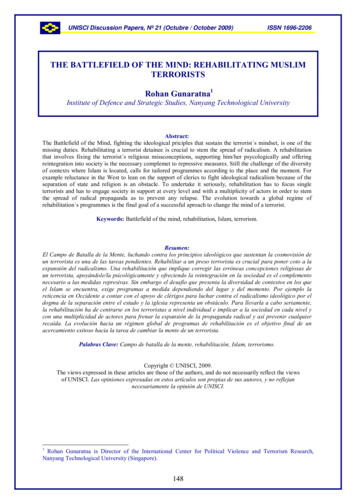
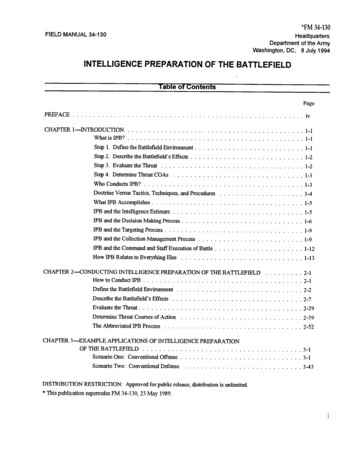
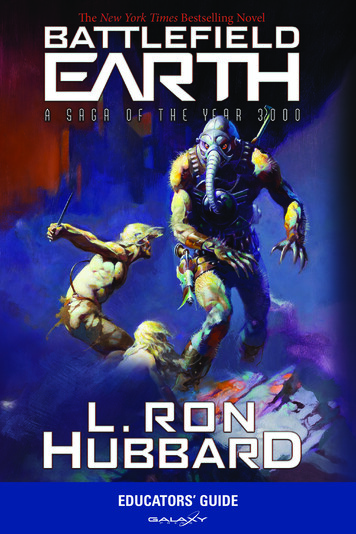
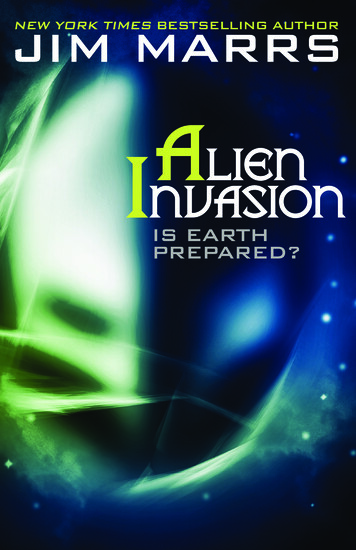
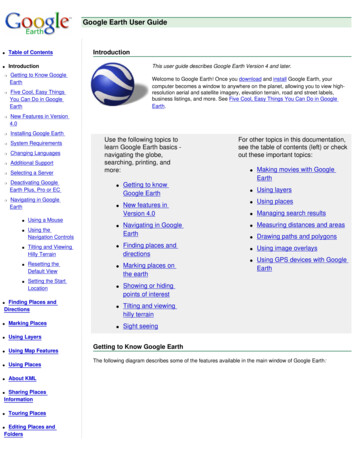
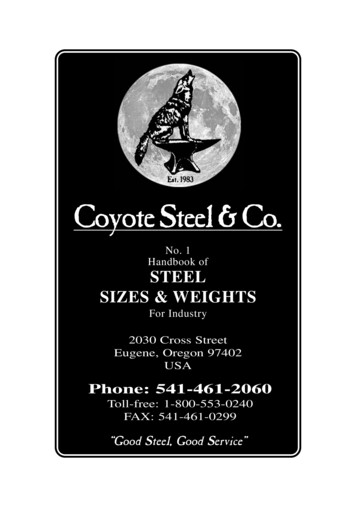
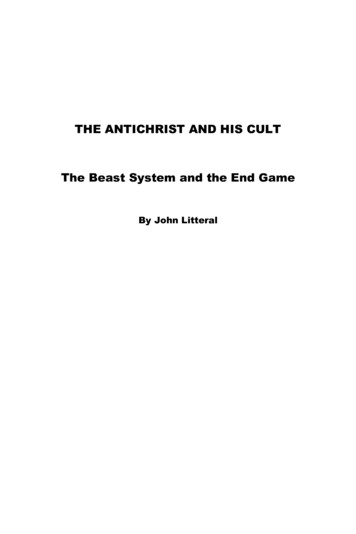
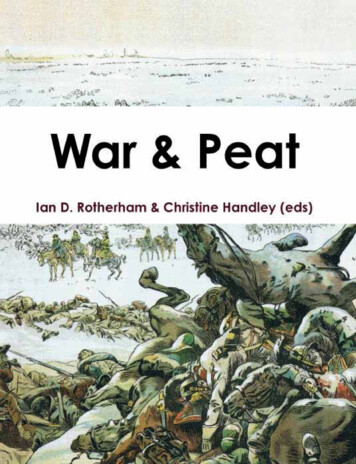
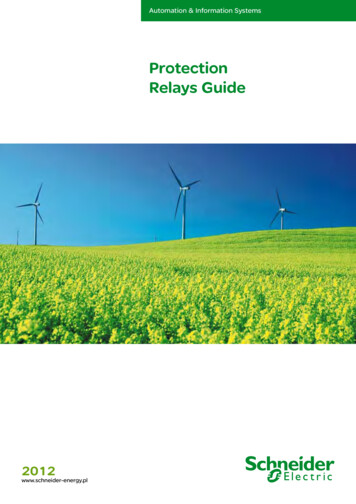
![20160924 修正版 System Keisoku ENG.ppt [互換モード]](/img/4/companyprofileinenglish.jpg)
